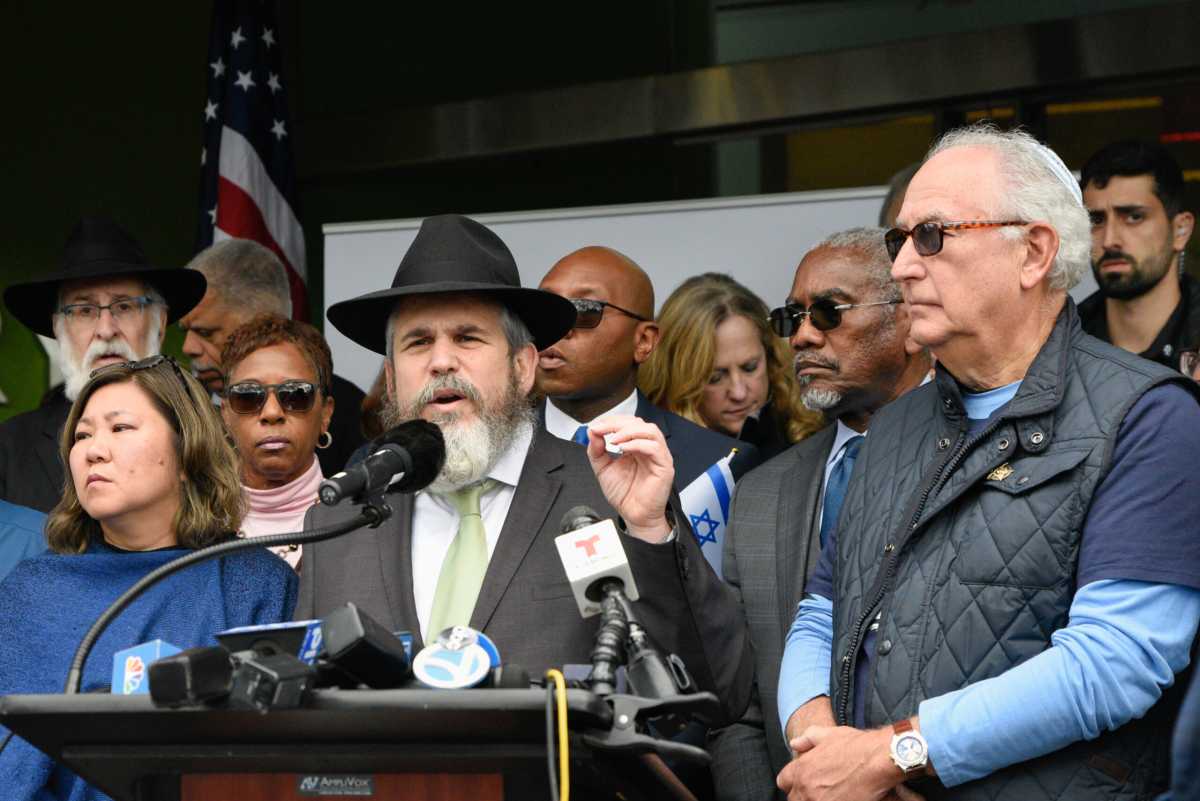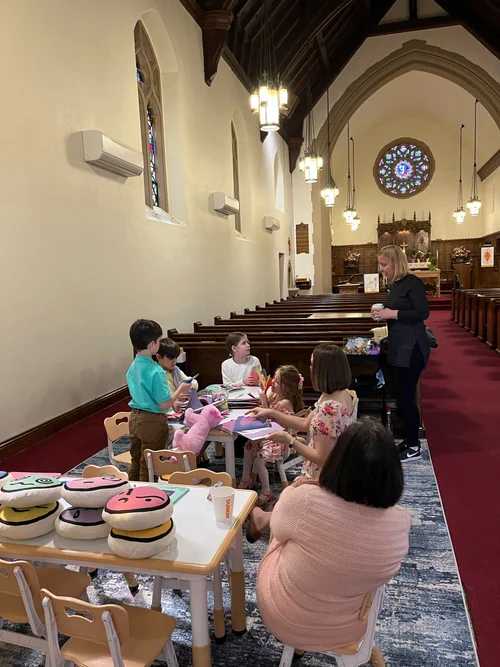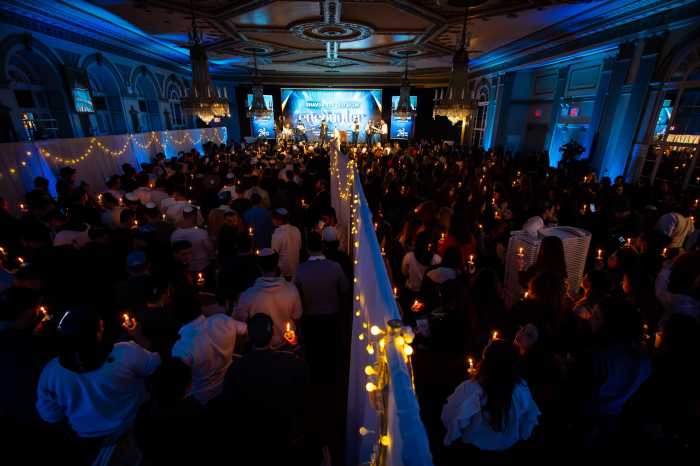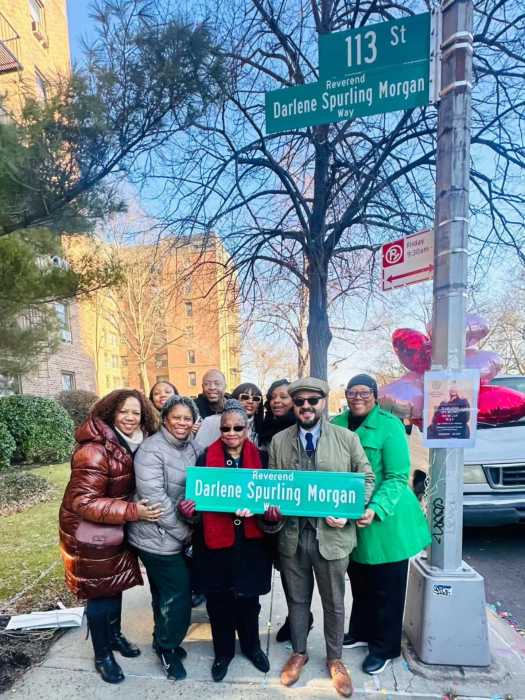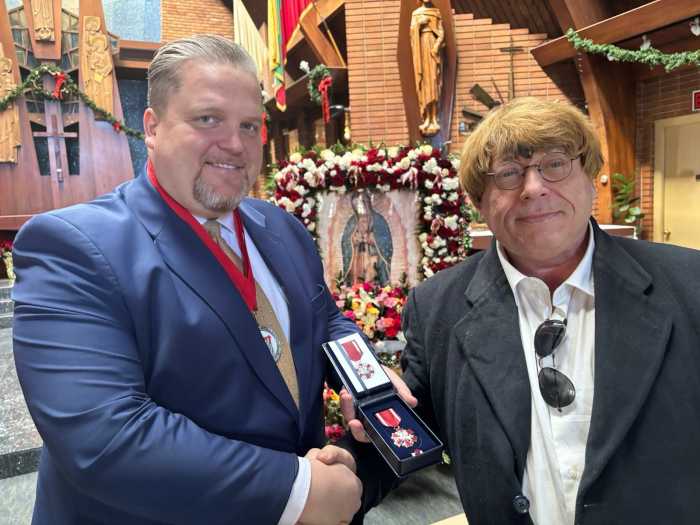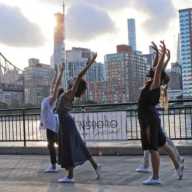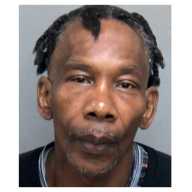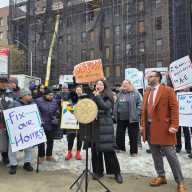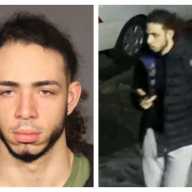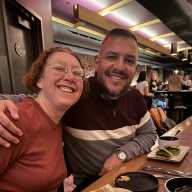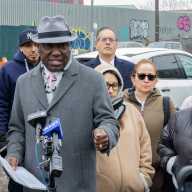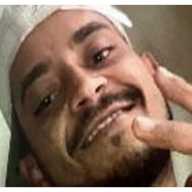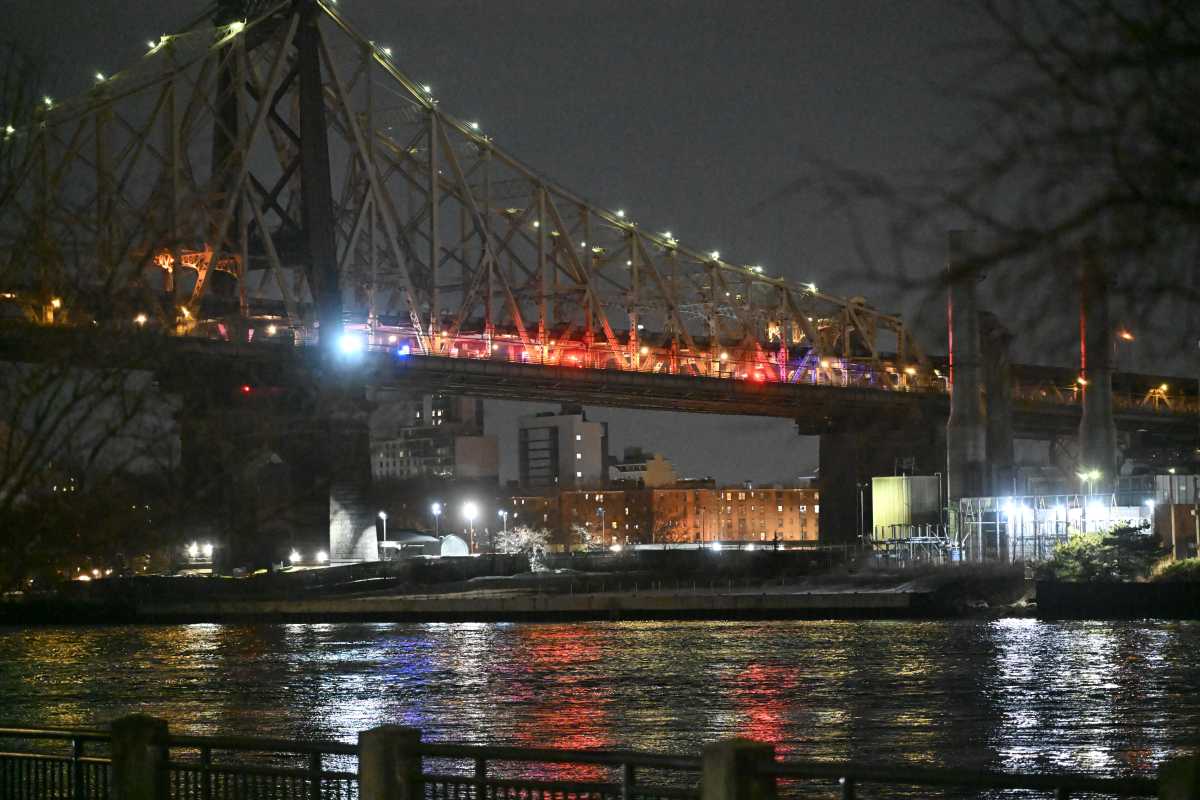New York City is home to one of the largest Jewish communities in the world, with a population of 1.6 million totaling greater than the Jewish population in Tel Aviv and Jerusalem combined. Each borough has its enclaves where that concentration is felt and seen.
While Brooklyn is known for its Hasidic Jewish communities in Williamsburg, Borough Park and Midwood, Queens is unique for its booming Russian-speaking Jewish population, especially in Forest Hills, Rego Park and Fresh Meadows, over the last 30 years.
From 2002 to 2011, the Jewish population in Queens rose by 11% to approximately 200,000. And while more recent data is not readily available yet, Jewish leaders estimate that recent demographic shifts contributed to more growth in the population.
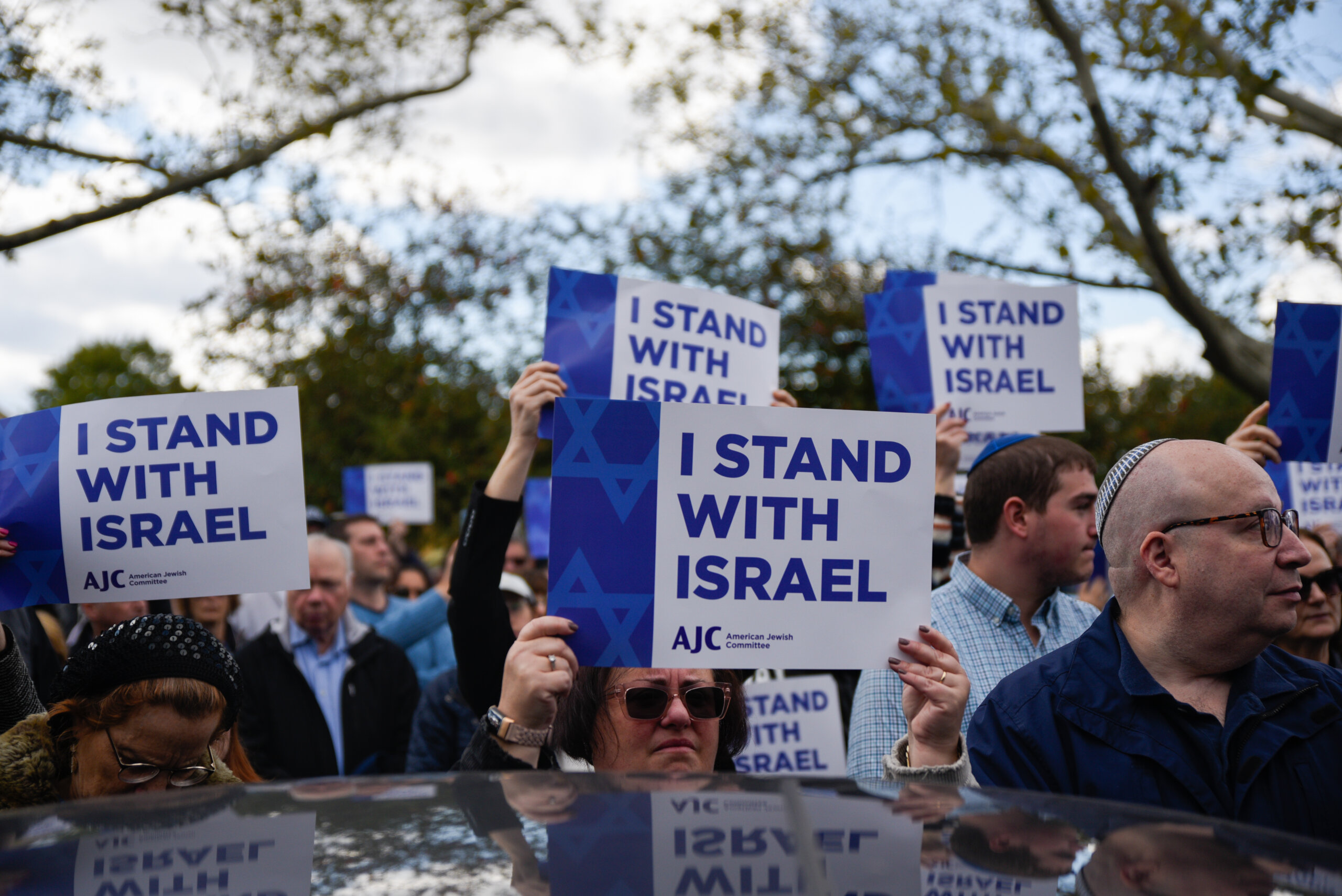
Since the deadly Hamas led incursion on Israel began on Oct. 7, Jewish residents in Queens, many of whom have family in Israel, are left glued to the news. Using Whatsapp and social media, they have also been able to stay in touch with their loved ones and confirm their safety.
Rabbi Yossi Blesofsky, who leads the Chabad of Northeast Queens in Bayside, says that he has many loved ones in Israel, including some who are in the armed forces. Those on the front lines in particular have been difficult to contact over the past few days.
“I don’t think there’s anybody in my community that doesn’t have loved ones in Israel,” Rabbi Blesofsky told QNS. “Whoever I speak with is in the same situation — they have cousins, friends, children, acquaintances. We absolutely all have people that were impacted by this incredible attack.”
He also acknowledges that being safe in Queens while more violence unfolds and the civilian death tolls rises on both sides has brought up feelings of guilt and powerlessness. With NYPD counterterrorism tasked with protecting Jewish institutions from hate crimes, he doesn’t worry about his safety often.
“I feel guilty, I do,” shared Rabbi Blesofsky. “There’s absolutely a very deep sense of guilt and inadequacy of not being part of the action.”
At a vigil held in Kew Gardens Hills on Monday Oct. 9, two state Assembly members, out of the many legislators who spoke in solidarity with Israel, also shared that they also have loved ones currently in Israel.
“As an Israeli, it’s hard to find the right words. And as an American, it’s also hard to find the right words. My heart is completely shattered,” Assemblymember Nily Rozic, who represents Flushing and Fresh Meadows, said at Monday’s at the vigil. “So many of my cousins, my family members, have been fighting to keep everyone safe.”
Assemblymember Sam Berger, who was recently elected to represent Kew Gardens Hills, where he has resided his whole life, also shared that his heart is with his family in Israel.
For him, the news of the attack in Israel broke when he was in Shul — the Yiddish word for synagogue — celebrating the end of Sukkot. He says that his mind went to “where are they,” thinking about whether his sisters, cousins or friends were safe.
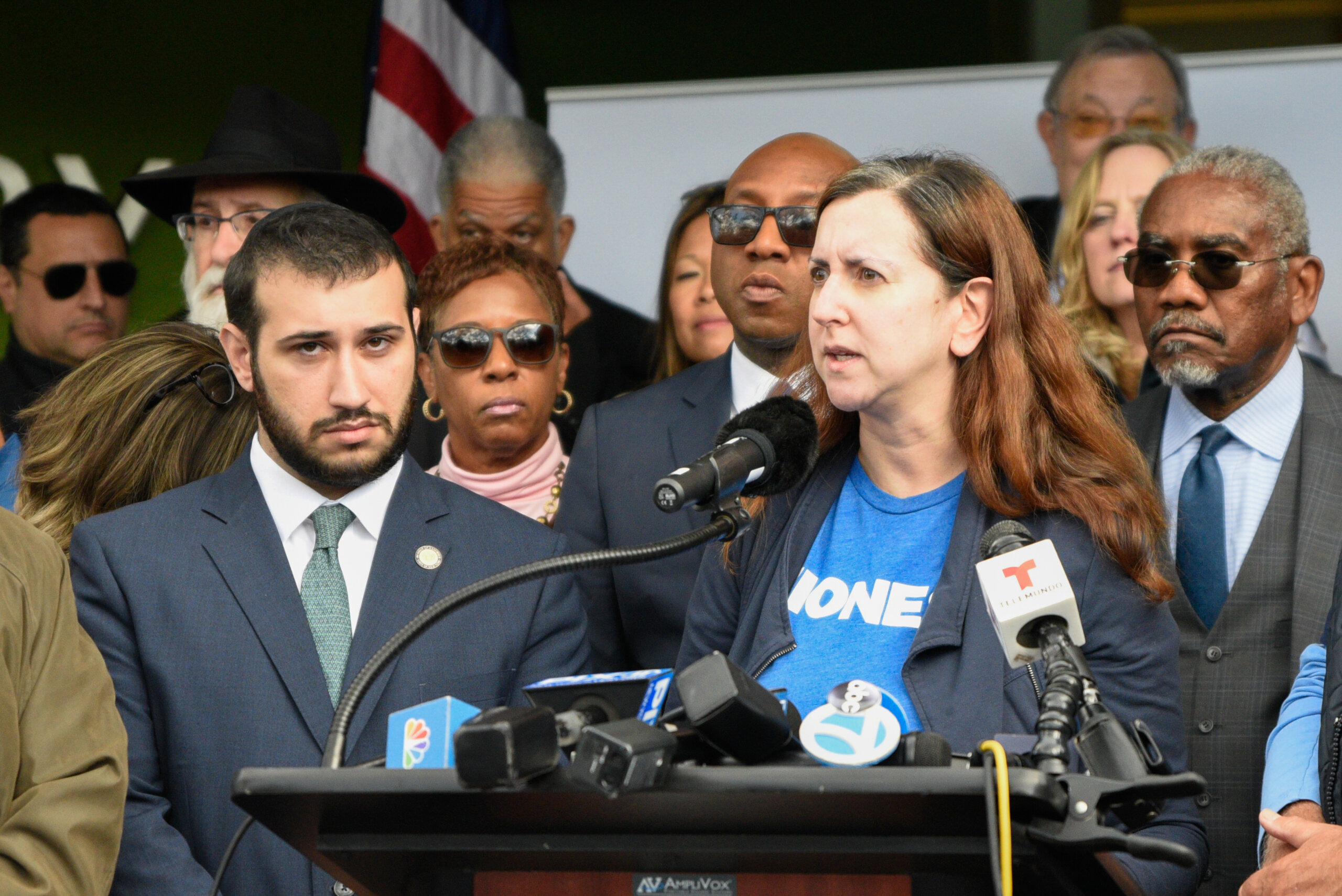
“Because they didn’t target soldiers, they targeted innocent civilians. People who choose peace do not choose to attack, to kill and slaughter innocent life,” Berger said at the emotional vigil.
The spreading claim that Oct. 7 was the deadliest day for Jewish people since the Holocaust could be true, if taking into account that a disproportionate amount of civilians have been targeted. Over 1,000 have been killed and 2,700 injured in Israel, according to official reports. And at least 830 people have been killed and 4,250 injured in Gaza, according to the Palestinian Health Ministry.
In 2011, it was estimated that there were 9,000 survivors of the Holocaust living in Queens. Now, Rabbi Blesofsky estimates that half remain from his own experience of having “a whole bunch of survivors” at his synagogue when he started, to being “down to a handful” today.
“The people in Queens are very, very pained. And whenever you have a multicultural community, that means that you probably have some people who might not sympathize,” said Rabbi Blesofsky, pointing out that his denunciation of the Hamas group has “nothing to do with the Palestinian people” who “have the bad luck of having incredibly bad leadership.”
“If you have good leadership you can rebuild. There is hope.” he added. “There is hope for the future.”

